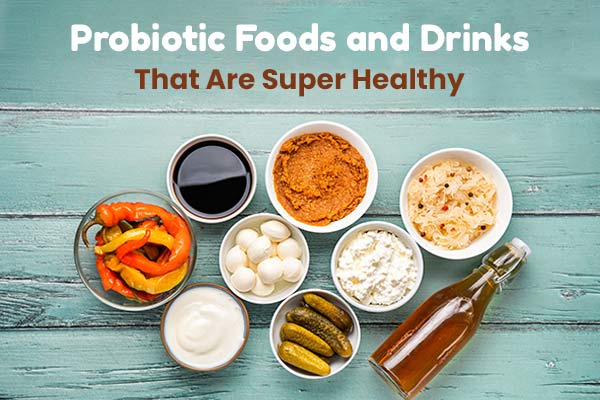- Empty cart.
- Continue Shopping
The Benefits of Probiotic Foods for Gut Health

Gut health has become a buzzword in recent years, and for good reason. A balanced gut microbiome is essential for optimal digestion, nutrient absorption, and overall well-being. One of the most effective ways to maintain a healthy gut is through the consumption of probiotic foods.
What Are Probiotics?
Before we delve into the benefits, it’s important to understand what probiotics are. Probiotics are live microorganisms, usually bacteria or yeast, that provide health benefits when consumed in adequate amounts. They are often referred to as “good” or “friendly” bacteria because they help maintain a balanced gut microbiome.
Types of Probiotic Foods
Fermented Dairy Products
Yogurt and kefir are among the most popular probiotic foods. They contain strains of bacteria such as Lactobacillus and Bifidobacterium, which are known for their gut-friendly properties.
Fermented Vegetables
Foods like sauerkraut, kimchi, and pickles are rich in probiotics and are also an excellent source of fiber, which acts as a prebiotic to feed the good bacteria.
Fermented Drinks
Kombucha and fermented teas contain a variety of probiotics and antioxidants that contribute to gut health.
Benefits of Probiotic Foods for Gut Health
Improved Digestion
One of the most immediate benefits of consuming probiotic foods is improved digestion. Probiotics aid in breaking down food and absorbing nutrients, making the digestive process more efficient.
Enhanced Immune Function
A balanced gut microbiome is crucial for a strong immune system. Probiotics help regulate the balance of good and bad bacteria, which in turn supports immune function.
Reduced Inflammation
Chronic inflammation is linked to numerous health issues, including digestive disorders. Probiotics have anti-inflammatory properties that help reduce inflammation in the gut.
Better Mental Health
Emerging research suggests a strong connection between gut health and mental well-being. Probiotics may help improve mood and reduce symptoms of anxiety and depression through the gut-brain axis.
How to Incorporate Probiotic Foods into Your Diet
Start Slow
If you’re new to probiotic foods, it’s advisable to start with small portions to allow your gut to adjust.
Diversify
Different probiotic foods contain different strains of bacteria, so it’s beneficial to include a variety of sources in your diet.
Pair with Prebiotics
Prebiotics are non-digestible fibers that feed probiotics. Foods like bananas, garlic, and onions are excellent prebiotic sources.
Finally, the benefits of probiotic foods for gut health are manifold, ranging from improved digestion and enhanced immune function to reduced inflammation and better mental well-being. By incorporating a diverse range of probiotic foods into your diet, you’re taking a proactive step toward maintaining a balanced gut microbiome and, by extension, a healthier, more vibrant life.
So, the next time you’re grocery shopping, don’t forget to add some probiotic-rich foods to your cart. Your gut will thank you!








